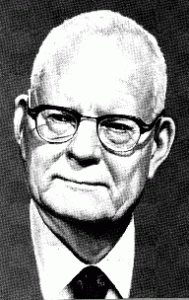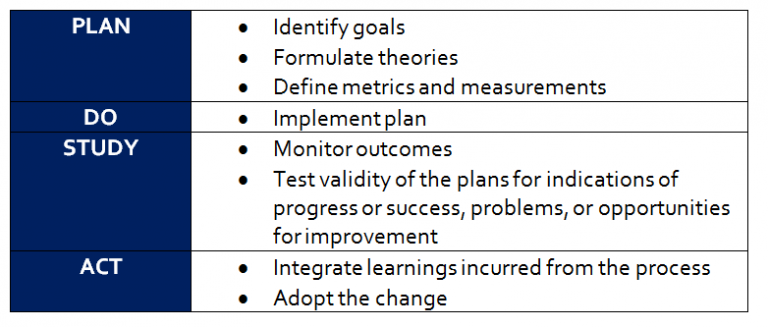Within the overlapping spheres of Total Quality Management and Lean Manufacturing, one Japanese word continues…
Spotlights on for Quality Guru, Dr. W. Edwards Deming

Dr. William Edwards Deming (1900-1993) was one of the pillars of the quality revolution after World War 2. As statistician, engineer, and a physicist, he’s the first American quality guru who brought the message of Quality to Japan in the early 1950s. He went to Japan to mentor industry leaders the quality management philosophies and use of statistical process control methods. He was regarded as the chief architect of their industrial success and an instrument to uplifting the state of post-war Japan.
For Deming, 94% of quality issues are caused by management problems. He devised a 14-point complete management philosophy in striving for quality, which can be applied to both small and large organizations, as well as both public and private sectors such as in healthcare, technology, manufacturing, education, etc.
Deming’s 14 Point Complete Management Philosophy:
- Create constancy of purpose towards improvement of product and service.
- Adopt the new philosophy. We can no longer live with commonly accepted levels of delay, mistakes and defective workmanship.
- Cease dependence on mass inspection. Instead, require statistical evidence that quality is built in.
- End the practice of awarding business on the basis of price.
- Find problems. It is management’s job to work continually on the system.
- Institute modern methods of training on the job.
- Institute modern methods of supervision of production workers. The responsibility of foremen must be changed from numbers to quality.
- Drive out fear, so that everyone may work effectively for the company.
- Break down barriers between departments.
- Eliminate numerical goals, posters and slogans for the workforce asking for new levels of productivity without providing methods.
- Eliminate work standards that prescribe numerical quotas.
- Remove barriers that stand between the hourly worker and their right to pride of workmanship.
- Institute a vigorous program of education and retraining.
- Create a structure in top management that will push on the above points every day
The 14 principles above were credited for the global success of organizations which followed them like Toyota, Proctor & Gamble, Ritz Carlton, Harley-Davidson, and many others.
Deming’s System of Profound Knowledge
Another one of Deming’s theories is the System of Profound Knowledge which comprises of four interconnected elements:
- Theory of Optimization
- Theory of Variation
- Theory of Knowledge
- Theory of Psychology
This system forwards the idea that the management is responsible for the optimization of the total system and not merely the individual subsystems. The total system encompasses all stakeholders and constituents of the organization – its management, shareholders, customers, employees, suppliers, the community, and the environment. Following the system of profound knowledge supports the company’s sustainable goal, which is a win-win situation for all constituents.
The organization who only focuses on the optimization of one subsystem is bound to achieve a suboptimal total system. For example, if we optimize procurement alone by cost-cutting on materials, these inexpensive yet substandard materials will have adverse effects on manufacturing and assembly in terms of repair, rework, or adjustments.
PDSA Cycle
Deming’s most eminent contribution to the field of quality is his introduction of the Plan, Do, Study, Act (PDSA) cycle, also known as the “Deming Cycle” or the “Deming Wheel”. It is a systematic approach to problem solving, and was introduced to Deming by his mentor and a fellow Quality Guru, Dr. Walter A. Shewhart (1891 – 1967). Dr. Shewhart is regarded as the Socrates of quality gurus.
The idea that the Deming Cycle seeks to present is that improvement is universal and necessary, and that companies should undertake continual improvement initiatives. The PDSA methodology highlights learning of what works and what doesn’t, making sure that what works is implemented. And the cycle repeats.
For Deming, quality narrows the wide gap between customer requirements and process performance.
His teachings on quality and productivity have earned him a hero status in Japan. “Deming Prize”, an award given annually for successful Japanese companies, is almost like the Nobel Prize for business success.
Photo Credits: https://alchetron.com/W-Edwards-Deming-1320357-W


